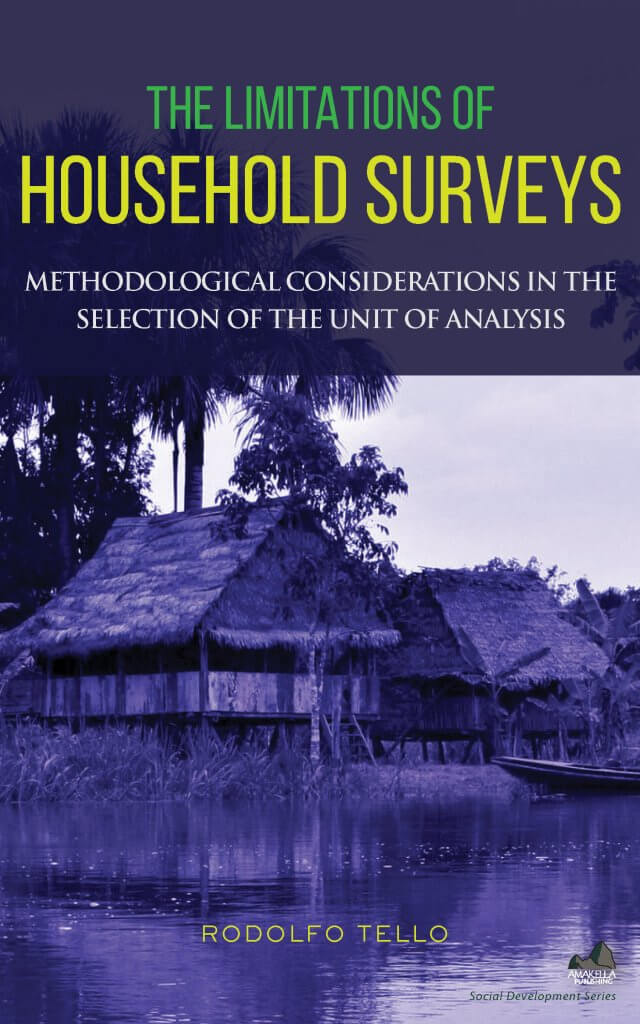The Limitations of Household Surveys: Methodological Considerations in the Selection of the Unit of Analysis
Households are diverse and should not be considered as a homogeneous unit, or used by default across different cultural contexts

One of the most widely used methods of socioeconomic data collection employed by international development and environmental conservation organizations is household surveys.
The information gathered in such surveys is frequently used to support a variety of arguments, but the methodological aspects of these surveys are rarely discussed. The anthropological literature on households, however, has extensively shown the variability and complexity of the definition and conformation of households, questioning their adequacy as a unit of statistical analysis in survey research.
This short ebook further explores this issue by analyzing the implications of household variability on the data collection procedures and the accuracy of survey measurements that use the household as a unit of analysis.
Taking as a reference the composition of households in three indigenous communities located in the Peruvian rain forest, this ebook illustrates how the high variability of households decreases the value of household surveys, providing methodological insights and practical considerations to take into account when defining the unit of analysis in socioeconomic studies that involve the use of surveys.
This ebook by Rodolfo Tello is available in digital edition only. Amakella Publishing, 2016. 29 pages. ISBN-13: 978-1-633870307.

Key Features
The household is frequently considered as the default unit of statistical analysis in many socioeconomic studies. A common factor in this type of studies, however, is that they do not discuss the adequacy of the household as the unit of analysis according to the specific sociocultural context in which they are applied. In many cases, they take it for granted that the household is usually the most appropriate unit of analysis, regardless of their variability. By doing so, these studies might be contributing to reproduce a narrative that legitimates research findings based on public credibility rather than empirical evidence.
Start reading this ebook here:

“The variability of the household across different contexts raises doubts about the representativeness of models that perceive the household as a homogeneous entity, since they do not capture its complexity. The most serious risks of employing household surveys in a standardized way are the exclusion of significant population sectors, especially the most vulnerable ones. By focusing on the measurements of central tendency, critical issues like gender discrimination and children’s exploitation inside the household might be missed.”


